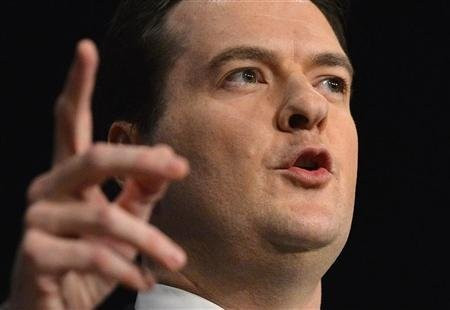UK Public Borrowing Falls, Deficit Narrows

UK public borrowing fell to £86.156bn in the 2012/13 fiscal year, according to the Office for National Statistics, beating forecasts from the Treasury's independent watchdog.
This figure, excluding the effects of the government's financial sector intervention, is down from the previous year's total borrowing of £120.9bn and defies the Office for Budget Responsibility (OBR) estimate of £86.5bn.
Across the year the public budget deficit fell by £300m, excluding the effects of bank bailouts and the windfall from the Royal Mail Pension Plan, to £120.6bn. This was ahead of the OBR's £120.9bn forecast and is driven by mostly by cuts to public investment.
The ONS notes that the debt figures benefit from a £6.4bn windfall from gilt coupon payments to the Treasury made by the Bank of England, which is buying up existing UK government debt from the market under its £375bn quantitative easing programme.
However, debt as a portion of GDP continues to rise - to 75.4 percent in March - amid weak domestic output from the embattled UK economy. The figure hit £1.186tn, according to the ONS.
Public sector current budget deficit was £10.6bn in March, said the ONS, £900m higher than the same month a year before.
Worse-than-anticipated domestic output has dwindled tax receipts. As a result, the public debt pile as a portion of GDP has soared and will keep rising until it peaks, at 85.6 percent in the 2016/17 fiscal year, after which it will fall.
This is two years later than Chancellor George Osborne's original target for debt to fall in percentage terms.
A rising debt ratio alongside a weak underlying economy and ever-present global economic crises, such as the ongoing eurozone woes, has led to the UK being stripped of its AAA credit rating by two of the three leading agencies.
Both Fitch Ratings and Moody's Investor Services cited the issues when taking the UK's credit rating down a notch, to AA+. The third major agency, Standard & Poor's, has UK finances on negative watch.
The UK's economic issues have also lead to several forecasters slashing their growth projections for 2013, including the OBR and the Bank of England.
Economists at the International Monetary Fund (IMF) were the latest to cut their estimates, predicting just 0.7 percent growth across the year. This is down from their previous guess of 1 percent. Before that, the IMF was forecasting 2 percent.
It led to the IMF suggesting Osborne row back in the short-term on his austerity programme of cuts to public spending - fiscal reforms deemed imperative by the government - else risk harming the economy even more.
Osborne has batted away this suggestion and is planning to announce an extension of an existing £80bn credit easing programme carried out by the Bank of England, called the Funding for Lending Scheme, with a view of improving access to finance for small firms, the lifeblood of the British economy.
© Copyright IBTimes 2025. All rights reserved.






















